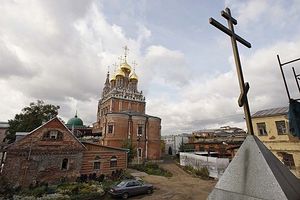September 18, 2012

|
The win also maintains a similar right for synagogues and mosques, though their numbers are tiny compared with Orthodox churches.
The State Duma legislation had originally proposed ending the government practice of transferring land to religious groups for free. In Russia, church buildings are usually owned by the Moscow Patriarchate, while the land underneath them typically belongs to municipal authorities.
But the head of the Russian Orthodox Church's legal department said "the current version of the draft legislation" won't change the land use system.
"For all legal entities that are exempted from paying land tax … there is a stipulated provision under which they are going to have 'permanent land ownership' on a free basis, which essentially won't change the current situation," Ksenia Chernega, the nun who runs the department, told Interfax last week.
She made the comments after Vedomosti reported Tuesday that Patriarch Kirill had sent President Vladimir Putin a letter criticizing the proposed amendments to the Civil Code.
Chernega said, however, that the letter had been sent in May and "from that moment" the church began working "with legislative and executive authorities" on the law.
Kirill wrote that the legislation "affects the legal interests of religious organizations," Vedomosti reported, citing a copy of the letter.
If religious institutions lost the right to use land free of charge and buy it from the government for free, there could be a "carving up" of properties, Kirill said, arguing that most religions organizations would forfeit their rights to that land because they wouldn't be able to afford to buy it.
Municipal ownership of church land is a vestige of policies in the Soviet Union, in which all land belonged to the state. The Soviet government also confiscated many church buildings and converted them into museums and offices. Many churches were reclaimed in the 1990s.
Under the initial proposals in the Duma, if a church were situated on municipal, regional or federal land, it would either need to pay rent to the relevant government body or buy the land, said Alexei Konevsky, head of Pepeliaev Group's real estate and construction practice. If a church skirted payments under that system, it would risk a government lawsuit to claim compensation for land use, he said.
Such lawsuits could bankrupt religious organizations, with their assets being seized and auctioned off, he added.
Speaking of financial and legal risks to religious organizations is "premature" at the moment, however, said Roman Zaitsev, a lawyer with Salans.
"Going by the current version of the Civil Code legislation, which will be subject to significant edits during its second reading, those risks haven't appeared," he said by e-mail.
